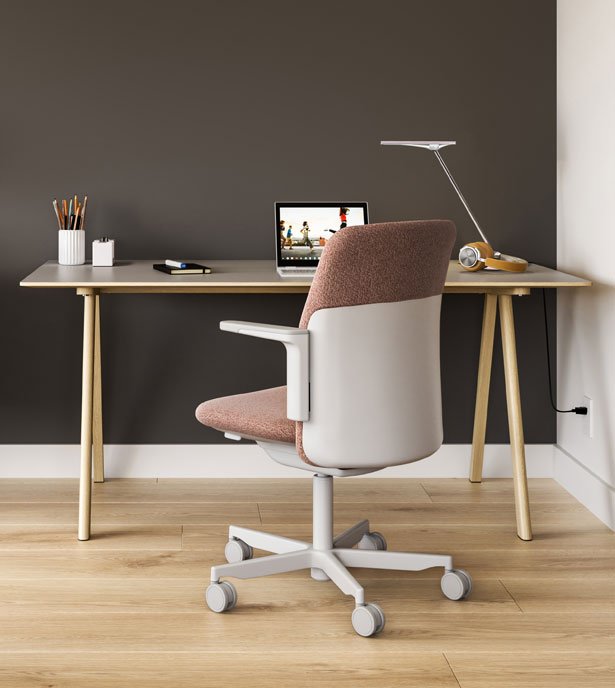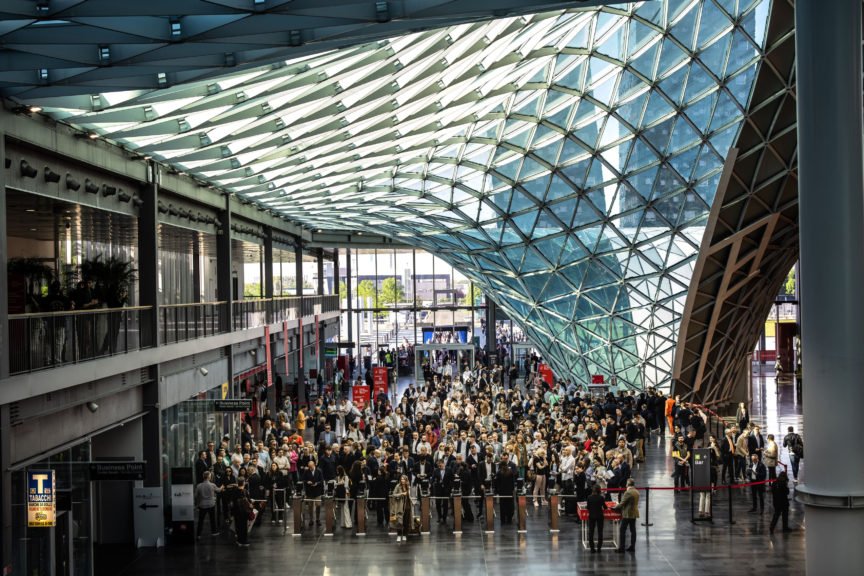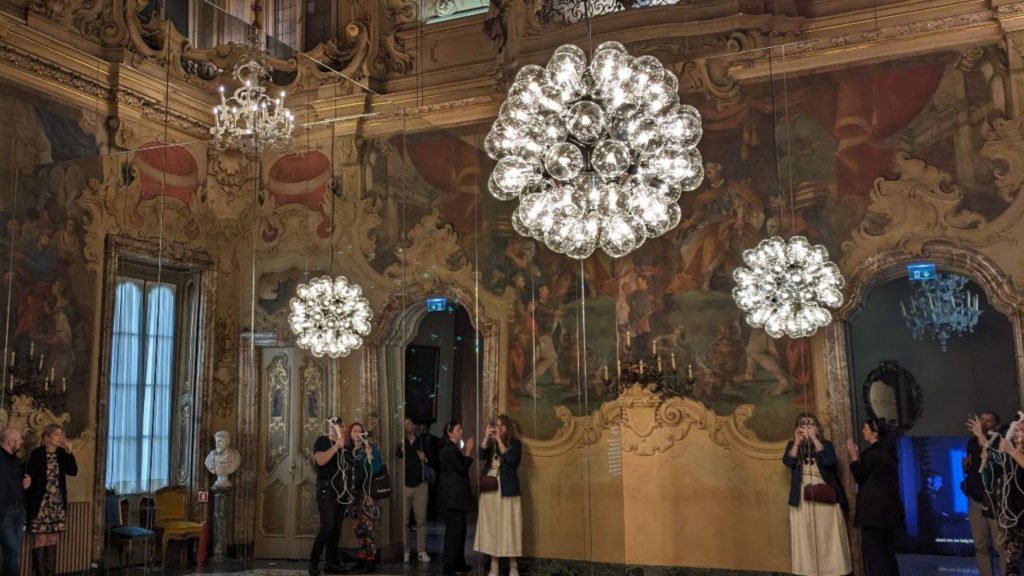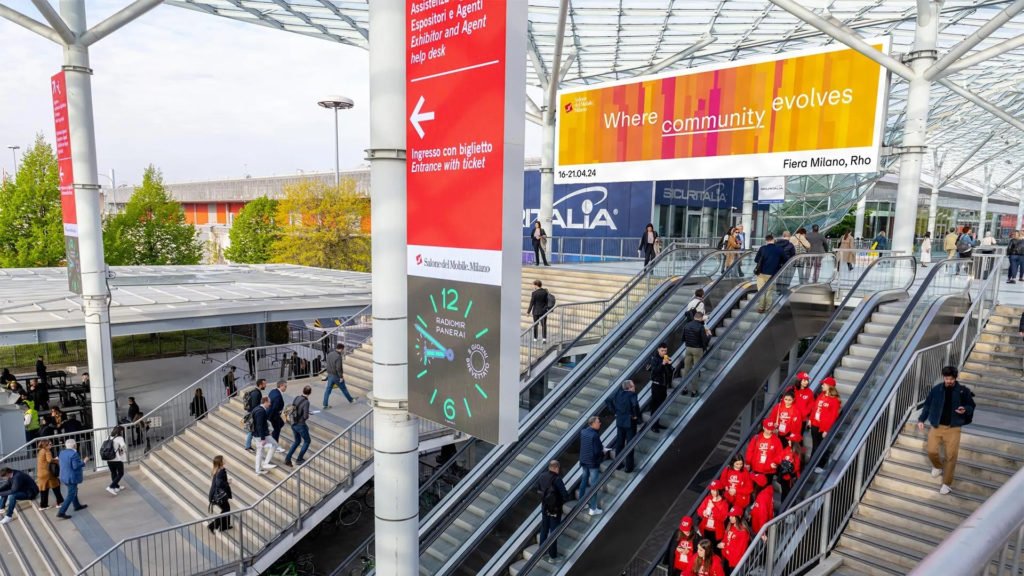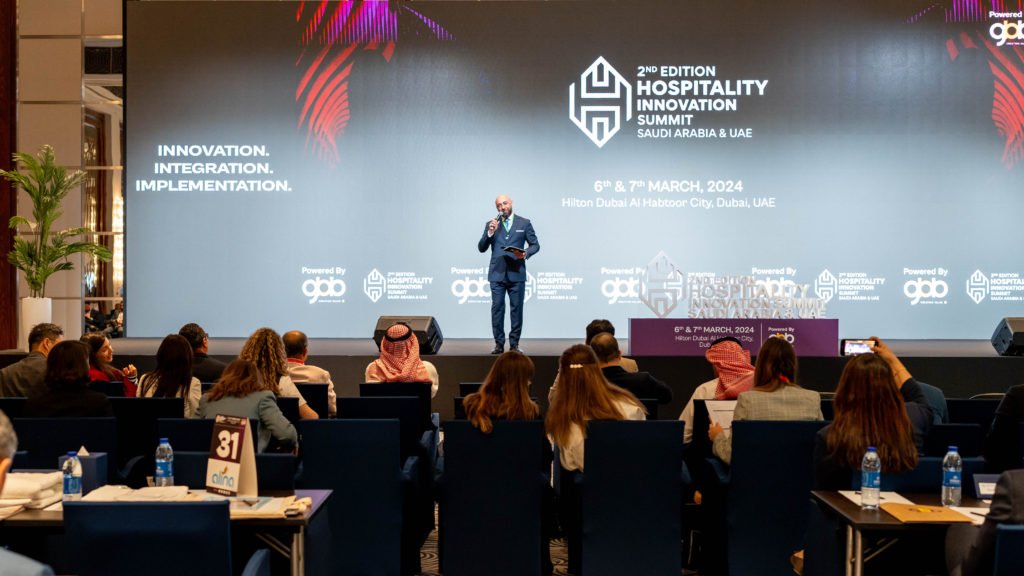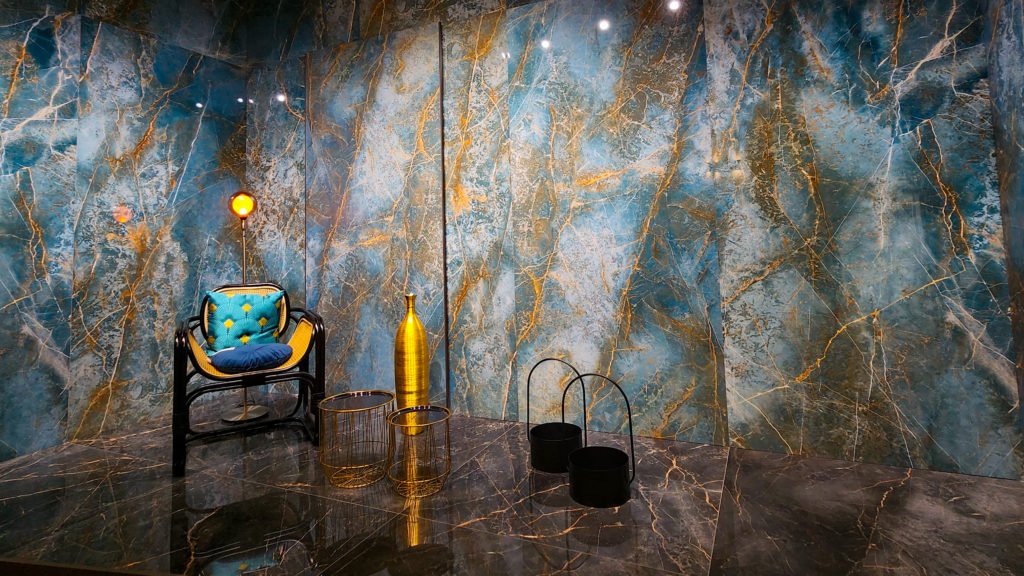The London Project’s linear silhouette tucked under the massive Ain Dubai was a sight to behold on an otherwise typical summer evening in the city. The diffused yet bright rays of the setting sun had softened the juxtaposition between the imposing architectural masses. As design professionals from Dubai’s most revered firms headed to the restaurant for the unveiling of Humanscale’s Path chair, they awed at the breathtaking vantage point.
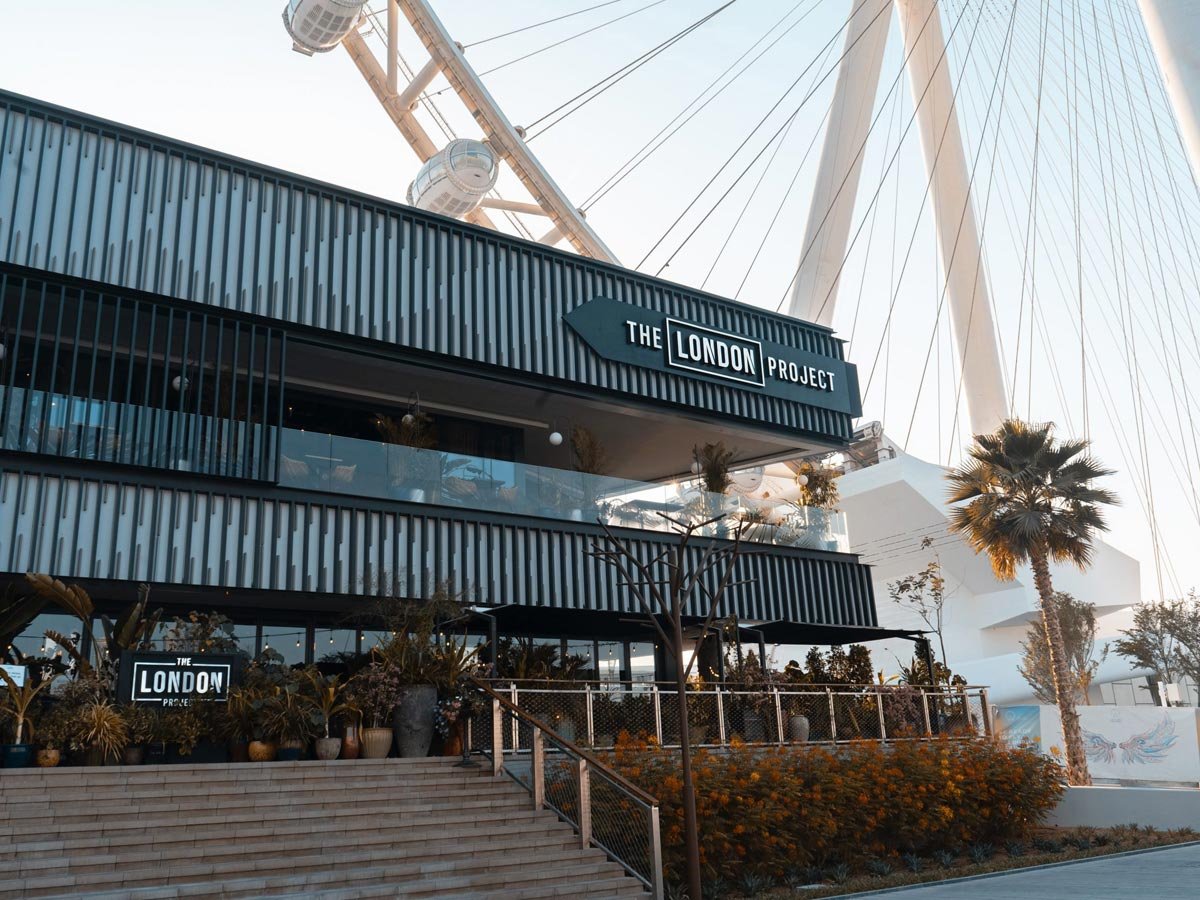
Inside, plush interiors and glamorous lights welcomed them. The mix of a happening location, an exclusive invite from Humanscale and the opportunity to have a digital discourse with their design director, Todd Bracher conspired a full-house. Although gauging by the anticipation, curiosity about the ‘World’s Most Task Sustainable Chair’ could also be at play.
Once refreshed and prepped with a drink of their choice, the attendees grabbed seats in a conference-style arrangement pointed towards a TV screen. Soon, they would be face-to-face (read: screen-to-face) with the man behind Path. Humanscale partnered with Love That Design to organise a colloquy around Todd’s personal journey in the field as well as his tryst to perfect Path.
About Path
According to a report by Green Standards, 9 million tons of office furniture goes to landfills annually. Out of the lot, task chairs are the most complex products (bulky hardware and components) that are difficult to dispose off responsibly. Such a predicament demands two-fold troubleshooting: to simplify the structure of the task chair and curate it with better materials.
Enter Path. The chair is the newest addition to the ‘Ocean’ Chair series by Humanscale. The collection, as hinted at in its name, employs reclaimed ocean plastic, specifically fishing nets in the composition of task chairs. The first two chairs in the Ocean series – Smart Ocean and Liberty Ocean – incorporate approximately 0.9 kilograms of repurposed fishing nets. At the same time, the trailblazing successor, Path, sets a new benchmark. The chair incorporates 10 kilograms of recycled materials, which constitutes for over 50% of Path’s composition.
Live with Todd Bracher: The responsibility of a designer
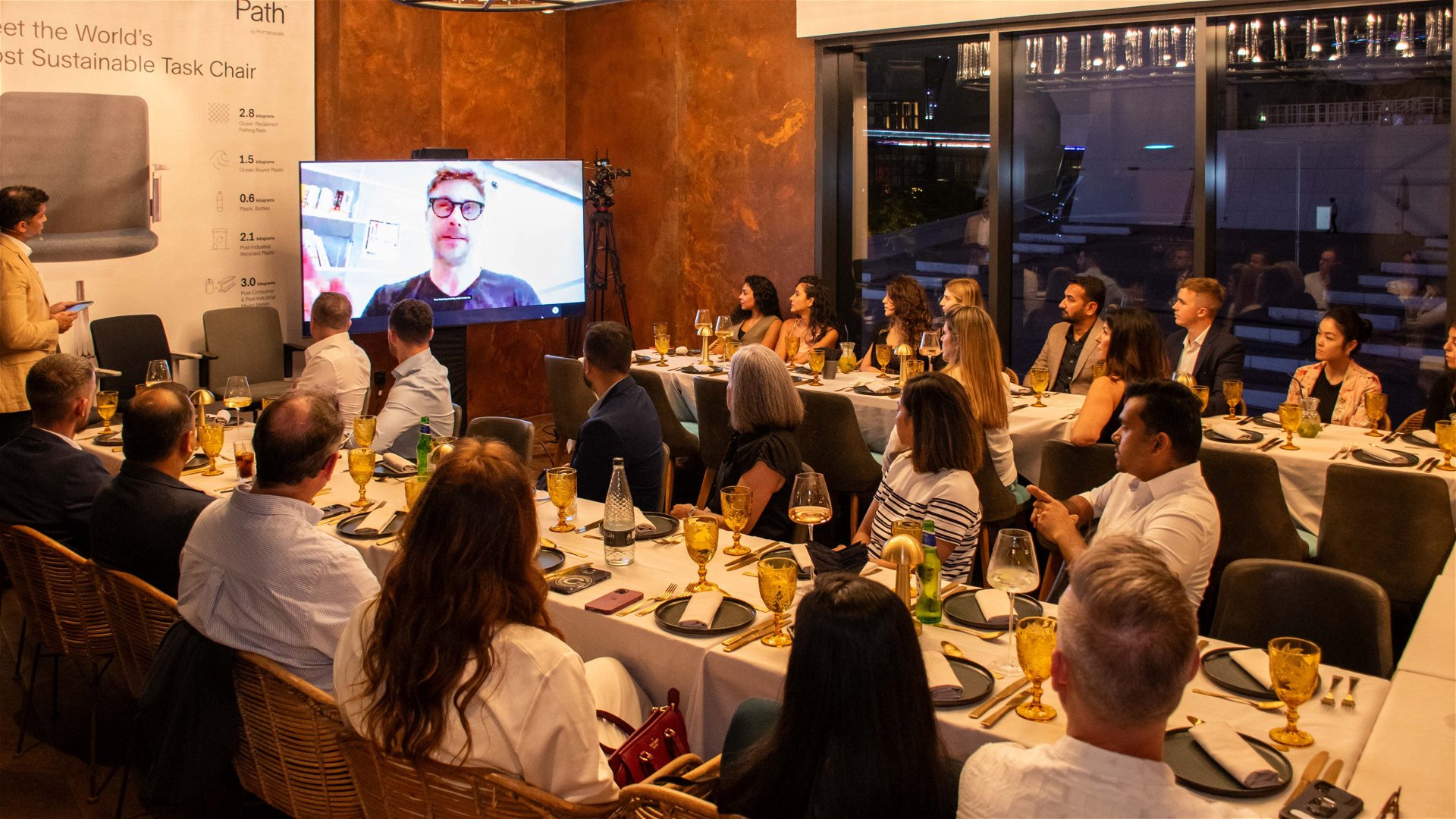
Star of the evening, Todd Bracher, obliged to the event in the capacity of Humanscale’s Creative Director and Design Partner but his stance established him as an ardent environmentalist and a shrewd business person by the end of it.
Born in New York, and a graduate of Pratt University, his design style emulates the sophistication and minimalism of a true-blue pragmatic. “What’s interesting is that most of my design language is driven by mathematics,” he quipped, “so I can design in Microsoft Word. I don’t need some elaborate systems.”
While the Path chair would be the most obvious example of his style, a more apt example is Lightwash, a UVC hand sanitiser. The idea dawned upon Todd when his sons were pumping gel sanitisers from plastic bottles in a mall. Waste (plastic consumption, dripping gel, costs in transportation) generated in the process had Todd probing for a more effective solution. To tend to the urgency and expedite the solution, he turned to his friend, Douglas Crosby. A board-certified emergency medicine physician, Douglas had predicted a pandemic and already patented a far-UVC technology for hand sanitisation in 2017. Leveraging the existing innovation, Todd developed the sleek and stylish Lightwash that operates like a hand-dryer.
Listening to Todd’s commitment towards the environment Vijay Nambiar, Design Director at Roar, complimented Todd’s diverse portfolio not only under his own industrial design studio, Betterlab but also esteemed brands such as Humanscale, Herman Miller and GandiaBlasco. However, being a designer himself, Vijay wanted to know how Todd leaves his mark on every design.
“I started as a cabinetmaker”, Todd revealed. “I used to build chairs with my own hands. Today my role is becoming less and less physical. I’m doing more and more in one way, and less and less in another. Sorry to say this, I don’t do anything anymore. It’s not like I have a team of 50 people working either. I do the design, and then I guide my team. I have surrounded myself with some excellent people, and I let them make the decisions. My job ultimately is more to be a conductor of the orchestra and not try to play every instrument.”
Todd also mentions working with all kinds of companies, and not all of them have the environment’s interest at heart like Humanscale. Citing parallels, he says, he has designed items such as perfume bottles and also the World’s Most Task Sustainable Chair. The perfume bottle was a more aesthetic undertaking for a luxury brand and clientele, yet conforming to his responsibility as a designer he delivered a bottle that uses 12% less material than the others in the brand’s repertoire.
Humanscale X Todd Bracher: Masterminding ‘Path’
The design entrepreneur’s experience over the decades had not only hard-wired him for problem-solving, but also made him brilliant at scouting opportunities. He realises that the role of an industrial designer is typically centred around the ‘how’ to manufacture a product effectively within a budget, and the ‘why’ a product is needed is more entrepreneurial. Still, he can’t help but be fascinated by the latter.
“I didn’t wake up one day saying I’d love to design a task chair,” Todd discerns. “Task chairs are one of the worst offenders of waste. They’re expensive and people don’t understand how to use them. When an opportunity to design one from the ground up came in, I realised you could replace the chairs which are contributing negatively to our environment with something that does the opposite.” For Todd, good design is more about the entrepreneurial ‘why.’ “If it’s not to improve the community, if it can’t improve the end-user’s lifestyle and our business then I don’t see the point of doing it,” he declares.
Todd went on to walk his audience through the process most manufacturers undergo to claim a task chair is suitable for 50% human bodies. At first, the average of a data-set of humans across weight, height, width and other parameters are calculated. Next, the calibrated results are taken as the measurements of one person. The chair is then designed with those proportions in mind. “In actuality, there is not even a single human body that conforms to those numbers”, Todd put vehemently. Knobs, levers, sliders, locks and other apparatus are later added in the contrived seat design so users can adjust the features. Todd accepts that the results are often considerably comfortable seats, but he has a critique – why must a user adjust the seat?
On the other hand, Humanscale’s patented Gravity Mechanism (installed in the Path chair) is triggered as soon as a user takes a seat. The technology actively and intuitively engages with the user’s proportions and actions to optimise comfort. Especially today with – hot-desking, remote working and co-working spaces – users can save time and effort poured in constantly adjusting seats with changing contexts.
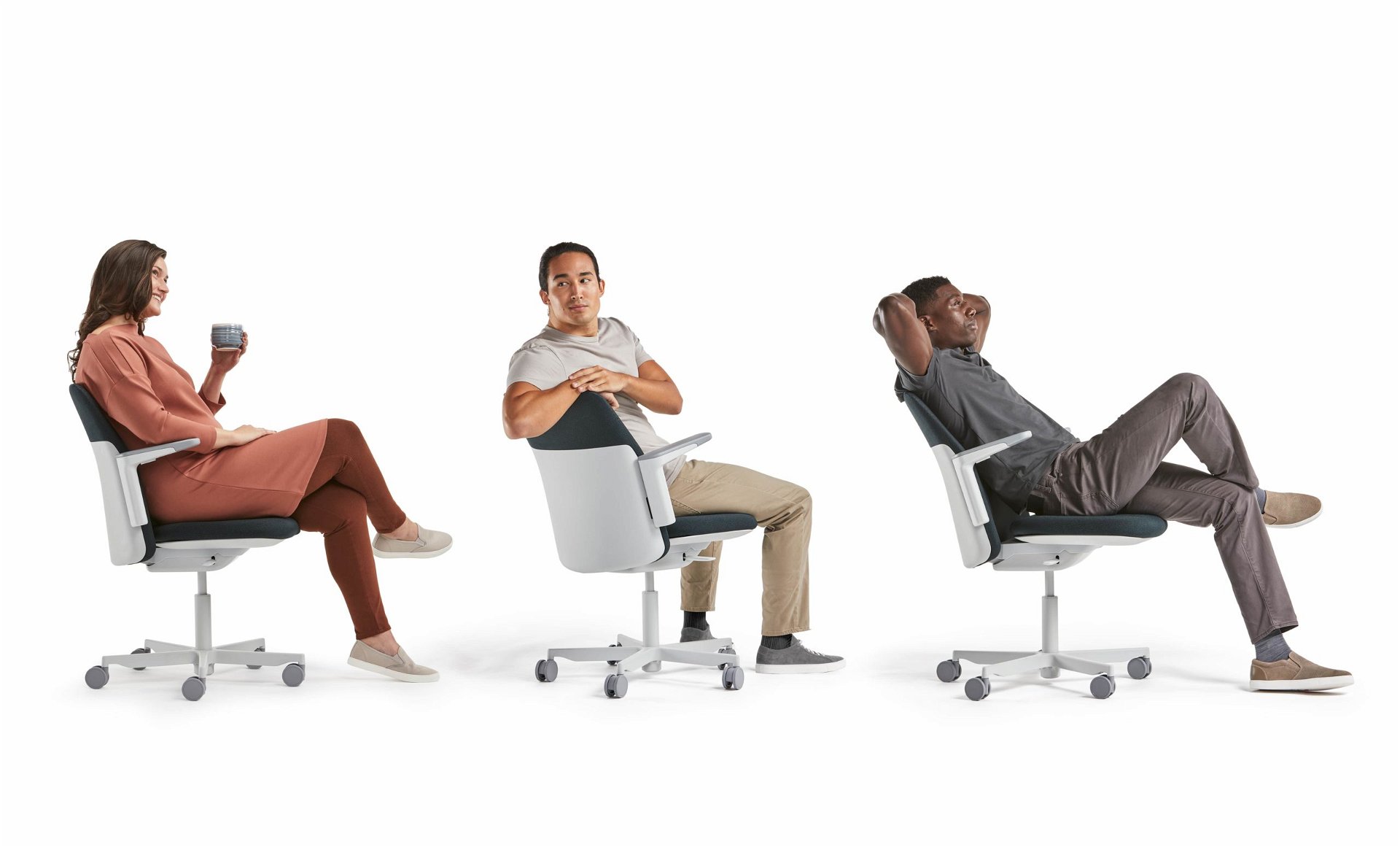
Other contributions made by Humanscale, particularly those to make Path a climate-positive task chair, were also acknowledged by Todd. Materials scientists, procurement teams and even the functioning of the Humanscale factory, all were pivotal in realising the chair. He also went on to present an interesting analogy. To him, Humanscale is the ‘Super Foods Section’ in a supermarket otherwise stocked with unhealthy consumables. Practices such as having Declare Labels for all their products (and being the first in the industry to do so) makes the brand one to look up to in his eyes. Being forthcoming about any harmful materials in compositions and their intentions of abolishing them also exemplifies their integrity.
Towards the end, when Fraser Butcher, Regional Director – MENA, Dubai, asked Todd if he could introduce one global legislation around helping product design, what would it be? He diligently obliged, “We have these intelligent designers all around the world, and they’re really working hard to make something like an accent pillow amazing. I feel maybe there’s a percentage of their effort that needs to be focused on helping communities and our planet, and not just creating more things to throw away. I’m not saying get rid of music or art. There’s a lot of design which does bring joy in our lives. Sometimes, I get frustrated when I see so much waste when there’s an ability for meaningful change.” With that, Todd bid adieu and thanked Dubai’s design diaspora that had graced the event to see him.
Soon after, the guests were seen mingling with each other. Some flocked to Fraser to ask questions about the chair, others continued the conversation that Todd had sparked, in intimate huddles. The rest of the evening was abuzz with discussions around sustainability, debunking green-washing, conscious environmental responsibility and much more.
The ‘Path’ chair had opened new avenues for dialogue. With its unveiling, Humanscale has established itself as a frontliner in materialising sustainable design. The brand, which believes in leading by example, is now looking to interior designers who hold great powers as specifiers to pass the baton. But we are not worried. We have reason to believe that the partnership between Humanscale and Todd Bracher had left an indelible mark on these professionals. We are hopeful that a new and revolutionary ‘Path’ awaits.
EVENT GALLERY
Article info
Article:
Date added:
20 July, 2023

